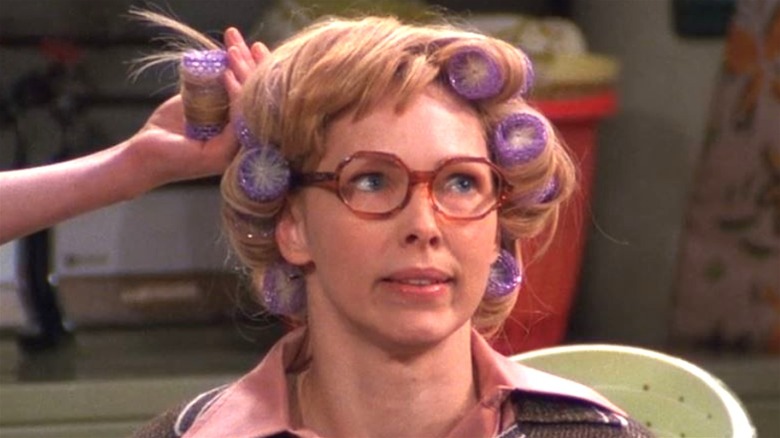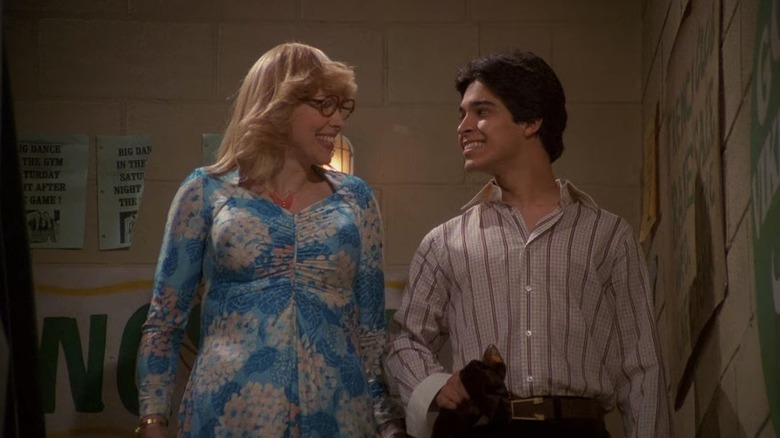Why Big Rhonda From That '70s Show Wouldn't Fly Today
"That '70s Show" was quite an edgy addition to the sitcom family when it made its debut in 1998. Chronicling the mundane misadventures of Wisconsin teenagers as they came of age during the groovy decade, the show's stories mostly revolved around the characters hanging out in a dingy basement, getting drunk, smoking pot, and getting jiggy with it. However, while "That '70s Show" pushed the boundaries of its PG rating on several occasion, the show also boasted an earnestness and innocence that resonated with many viewers. According to Eric Forman actor Topher Grace, "If you lived through the 1970s or even just survived being a teenager, one of these characters could be you."
That being said, if "That '70s Show" was released today, it would probably be a much different show. There are parts of "That 70s Show" that are too inappropriate for modern values and sensibilities, especially the storylines which contain overt sexism and body shaming. Big Rhonda's (Cynthia Lamontagne) arc certainly applies in this case.
Portraying Big Rhonda as unattractive did not age well for That '70s Show
First introduced in the Season 4 premiere, "It's a Wonderful Life," Rhonda is immediately established as an unattractive nerd who serves as nothing more than the butt of demeaning jokes from the main cast of "That '70s Show." She's portrayed as a loud, obnoxious, heavily-built girl who spends most of her time eating or complaining about being hungry. When viewers first meet her, she appears in Eric's daydream as an undesirable alternative to Donna (Laura Prepon). Heartbroken over the collapse of his romance, he fears that he'll end up having to date Big Rhonda and get stuck with her. Over time, however, Big Rhonda becomes a love interest for Fez (Wilmer Valderrama), causing his friends to unleash a swarm of derogatory comments about her weight and looks.
Another problematic element aspect of the character is how she was portrayed by an actress in a bodysuit. Cynthia Lamontagne was known for her roles in movies like "Austin Powers: Man of Mystery" as an attractive fembot, and the decision to put her in a "fat suit" could be interpreted as quite demeaning. As Fluffy Kitten Party points out, this trope is distasteful, as it represents the notion that every fat person has a wish-fulfillment fantasy in which there is a prettier, thinner person living inside them. Big Rhonda typified this idea, and such a storyline would undoubtedly be panned in a contemporary show.

